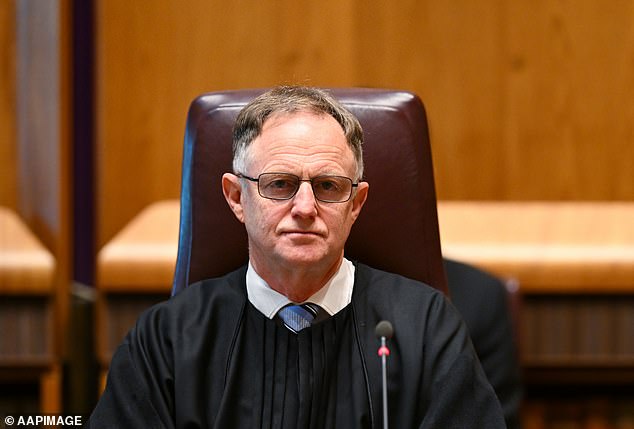Notorious child rapist NZYQ freed from indefinite detention could be entitled to taxpayer-funded pay-out
A refugee who raped a 10-year-old boy could be entitled to compensation after the Supreme Court ruled his indefinite immigration detention was unlawful and released him into the community.
The landmark November 8 ruling ultimately led to the release of more than 140 people in custody who cannot be deported to their home countries.
One of the released prisoners was a Rohingya pedophile – known only as NZYQ – who has been in custody since serving a prison sentence for child sex abuse.
NZYQ arrived in Australia by boat in 2012 and had his bridging visa revoked in 2015 when he pleaded guilty to sexual intercourse with a 10-year-old child – a crime he committed as a teenager.
He was transferred to an immigration detention center in May 2018 after serving a minimum sentence of three years and four months.
A Rohingya pedophile – known only as NZYQ – who was released from immigration detention after a Supreme Court ruling found he had been unlawfully detained could be entitled to compensation (stock image of an asylum seeker in immigration detention)
He was also denied a 'safe haven enterprise' visa and faced the prospect of spending the rest of his life in immigration detention.
However, the Supreme Court ruled that his indefinite detention was unlawful and granted him a writ of habeas corpus, which mandated his immediate release.
Under the Migration Act, any 'unlawful non-citizen' must be detained pending deportation or the processing of a visa application.
NZYQ is a Rohingya refugee – one of the stateless Muslim people who live in western Myanmar, near the border with Bangladesh, where they are persecuted.
Because the Rohingya are not citizens of Myanmar – which considers them Bangladeshis and not a separate ethnic group – NZYQ cannot be deported there.
Because he cannot be deported home, his detention became a punishment, with the executive no longer having constitutional authority under the Migration Act.
The court ruled that NZYQ was unlawfully detained for six months from May 30 as there was no prospect of his deportation in the near future.

NZYQ arrived in Australia by boat in 2012 and had his bridging visa canceled in 2015 when he pleaded guilty to sexual intercourse with a 10-year-old child (stock image)
The government was forced to grant NZYQ a visa because he cannot be lawfully detained again unless deportation becomes an option again.
Now NZYQ is entitled to compensation from the Commonwealth for its false imprisonment.
NZYQ, along with the other detainees involved in the High Court decision, will only have to file a lawsuit because their false imprisonment has already been established.
The court will have to determine NZYQ's damages – an amount of money awarded by the court for the purpose of replacing the monetary value of his loss of freedom.
Successful claims can range in value from as little as $1 – a nominal amount given if the claimant suffered no real harm – to potential payouts of hundreds of thousands of dollars.
The High Court ruled that NZYQ's detention was unlawful because there was 'no realistic prospect that his removal from Australia would become practicable in the reasonably foreseeable future'.
The decision overturns a 2004 ruling that allowed the indefinite detention of non-citizens without visas even if they could not be deported.
Liberal Leader Peter Dutton said the government must answer questions about whether or not “appropriate checks” were carried out before the 149 prisoners were released.
“The government just needs to be upfront with the Australian people,” he said.
Mr Dutton said Labor had been “swinging from crisis to crisis” since the High Court ruled NZYQ could not be held in immigration detention indefinitely.
The Community Protection Board, established by the government, consists of former police officers and border guards.
It will review the list of detainees and assess what measures should be imposed on them, such as supervision orders and preventive detention.

NZYQ will have to sue for damages because its claim of false imprisonment had already been established by the High Court ruling (photo, Chief Justice of the High Court of Australia Stephen Gageler
Earlier this month, the House of Representatives voted 68 to 59 in favor of the laws covering released detainees who pose an unacceptable risk of committing a serious violent or sexual offense.
Under the law, released detainees who were deemed by a court to pose an unacceptable risk would be put back behind bars.
The maximum duration of the arrest warrant is three years, but is reviewed annually.
Immigration Minister Andrew Giles said the detention measures were necessary.
